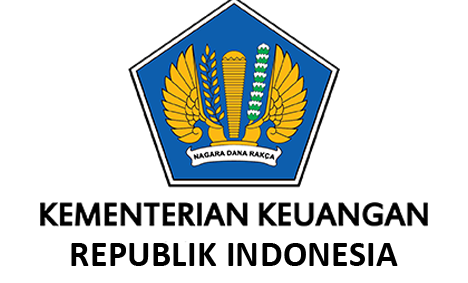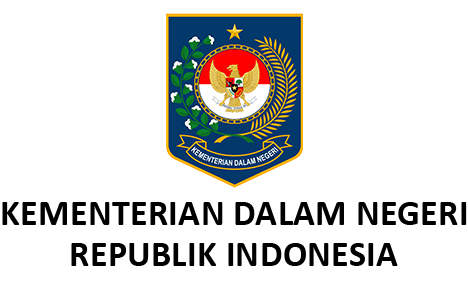Minimum Service Standards (MSS)
Improved technical capacity in Minimum Service Standards (SPM) among local government agencies has driven data-based planning and thematic budgeting, and increased e-SPM reporting completion to 98 per cent
Strengthening the technical capacity of local government agencies (OPDs) responsible for SPM has led to more effective planning and budgeting of SPM programs in Maluku. This is reflected in the Budget Implementation Documents (DPAs) of several OPDs, which now provide more focused support for SPM targets.
For example, the Housing and Settlement Office allocated IDR375 million for data collection on relocation targets in disaster-prone areas. Meanwhile, the Public Works and Spatial Planning Office included the preparation of the Drinking Water Supply System Master Plan (RISPAM) in its 2025 DPA, a strategic document that guides the delivery of basic infrastructure services.
There has also been a significant improvement in the completion of e-SPM reporting forms by OPDs such as the Education, Health, and Public Order and Community Protection Offices, with an average completion rate of 98 per cent. Previously, reporting was often low and inconsistent.
These developments demonstrate that enhanced technical capacity has led to stronger governance and more data-driven planning, as the foundation for more measurable and impactful SPM outcomes.
Public Financial Management (PFM)
Regional and Governor Regulations on Local Taxes and Retributions (PDRD) in Maluku strengthen the legal basis for tax collection and increase local revenue to finance public services and infrastructure
The Provincial Government of Maluku has enacted Regional Regulations (Perda) and Governor Regulations (Perkada) on PDRD, that provide a legal foundation for managing local revenue. These policies enhance regulatory clarity in tax and levy collection while delivering tangible benefits to the public.
Increased Local Own-Source Revenue (PAD) from the implementation of these regulations is being used to finance public infrastructure such as roads, bridges, markets, and education and health facilities, thereby contributing directly to community well-being.
The enforcement of these PDRD regulations is also aligned with the Law on Fiscal Relations between Central and Local Governments (UU HKPD), which promotes more effective, transparent, and service-oriented local financial management.
Data & Analytics (DNA)
The use of Regsosek data in settlement planning and poverty reduction documents in Maluku Province enables more targeted policymaking
The Provincial Government of Maluku has integrated Social and Economic Registration (Regsosek) data into the preparation of the Poverty Reduction and Settlement Quality Improvement Plan (RP2KPKP) and the Settlement Area Development Plan (RPKD). The use of this data has improved the accuracy of program targeting and interventions –ranging from social protection and economic empowerment to access to basic infrastructure.
The Housing and Settlement Agency (Perkim) used data analysis on uninhabitable housing and slum areas to inform the drafting of the RP3KP. Meanwhile, the Public Works Office used data on access to safe drinking water and sanitation to support funding proposals for the Presidential Instruction on Water and Sanitation (Inpres Air Minum dan Sanitasi).
SKALA supported this process through a Training of Trainers (ToT), which produced 19 master trainers (13 men and 6 women). These trainers are now actively conducting Regsosek data analysis within the Perkim and Public Works Offices. The integration of data into planning has enhanced the effectiveness, transparency, and accountability of development programe implementation.
This approach has made Regsosek data a critical foundation for formulating more efficient, sustainable and responsive policies.
Gender Equality, Disability & Social Inclusion (GEDSI)
The enactment of the Regional Regulation on Gender Mainstreaming in Maluku Province has strengthened the legal basis for the implementation of the PUG, reactivated the PUG Working Group and promoted sustained budget support
The enactment of the Regional Regulation (Perda) on Gender Mainstreaming (PUG) in Maluku Province is a strategic step towards advancing gender equality and inclusive development. The regulation ensures equal access to resources, public services and opportunities in key sectors such as education, health, the economy and social participation for both women and men.
It also reinforces the protection of women and children from violence and discrimination, while encouraging more responsive policies towards vulnerable groups.
The drafting process was conducted collaboratively, involving the Civil Society Network (JMS) and local government stakeholders. Active participation from a range of stakeholders was essential to ensure that the regulation reflects local realities and community needs.
One of the immediate impacts of the regulation’s enactment was the reactivation of the Gender Mainstreaming Working Group (Pokja PUG), which held its first meeting after a two-year hiatus. This forum now serves as a cross-sectoral coordination platform for implementing gender mainstreaming strategies.
To support the sustainability of Pokja PUG activities, the Office of Women’s Empowerment and Child Protection (DP3A) has allocated IDR200 million in its 2025 Work and Budget Plan (RKA).
With this regulation in place, integrating gender perspectives into development planning and budgeting is crucial to ensuring that all members of society benefit fairly from development.






